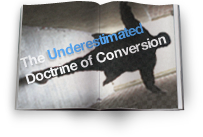Book Review: 40 Questions about Christians and Biblical Law
I expect that many Christians might not think that a book with the title 40 Questions about Christians and Biblical Law would be that helpful for their daily Christian lives. After all, the law is not the most enticing subject. Further, we are “not under the law” as members of the new covenant, right?
Well-known and widely-respected New Testament scholar Thomas Schreiner would beg to differ.
Do you want to interpret the Bible rightly? Comprehend justification? Understand what parts of the law do apply to your life? Then you need to understand the law. Further, recent controversies over interpreting Paul’s letters have made understanding the law important on still another level (see my review of Barcley and Duncan’s Gospel Clarity in this issue of the 9Marks Journal).
FORTY QUESTIONS IN A USEFUL FORMAT
To get at these kinds of issues, Schreiner asks forty questions that commonly emerge around the law. The questions are arranged into five parts: the law in the Old Testament, in Paul, in the Gospels and Acts, in the General Epistles, and in contemporary debates.
Each question is exegetically answered in two to six pages, making the book a very accessible resource for specific topics or texts. Moreover, each answer ends with a summary for quick reference and a handful of reflection questions for those who want to linger a bit longer over the issues. Footnotes throughout and an annotated bibliography in the back also point readers to helpful sources for further inquiry.
COMMENDATION AND CRITIQUE
Yet more than just dropping in and out of the book, pastors, students, and laypeople with an interest in biblical theology will benefit from a cover-to-cover read. Schreiner’s total presentation of the law holds together well. By and large, the questions are arranged in logical order. For example, it is good that question 40, “What Role Does the Law Have in Preaching?”, is the last one. I do not think a pastor could jump to it and understand all that Schreiner is trying to communicate without first wading through at least some of the book’s previous content.
Also, on a theological level, I commend Schreiner for his redemptive-historical presentation of the law—another example of the book’s holistic and coherent scope—and attention to Christological detail.
Readers interested in recent debates over Paul will also be interested in this volume. It becomes clear early on that Schreiner has such debates at the fore of his writing agenda; the subsection called “Questions Related to the New Perspective” occupies questions 4 through 8. It is clear where Schreiner comes down on the issues: “major planks of the New Perspective reading of Paul are flawed” (39). Additionally, the New Perspective comes up several times in the subsection called “Questions Related to the Role of the Law in the Christian Life” and, of course, pervades the subsection called “Questions Related to Justification.”
This is no critique; the New Perspective is an important topic, one particularly warranted in a detailed look at biblical law. In all, more than half of the book is devoted to Paul, and so New Perspective issues weave in and out of questions 4 through 25.
What is lost in the helpful emphasis on Paul, however, is the law in the Old Testament. Only two questions, comprising a total of five pages, are devoted to the law in the Old Testament. Less than 3 percent of the book, therefore, is given to the texts that comprise the vast majority of the Bible.
So while I praise Schreiner for his redemptive-historical understanding of the law, there seems to be an imbalance in his treatment of law throughout Scripture. For example, the law dominates Leviticus and Deuteronomy. Yet while these books are looked back on in considering the law in the New Testament, there is no sustained focus on them. It is as though they merelyserve as context or foil for the New Testament. But they are much more than that, even for the Christian’s life (which is the focus of the book’s title). For example, how is Deuteronomy “not an idle word, but indeed [our] very life” (Deut 32:47)? Or, in what manner are Christians to “keep [God’s] law continually” (cf. Ps 119:44)? To be sure, Schreiner has provided the tools for readers to arrive at answers to such questions. I merely make the point to encourage readers to continue to think about questions of the law and some helpful directions to do just that.
The law is also often spoken of in the Psalms, yet Schreiner gives us little outside of Psalm 119. The prophets are concerned with the law as well, and deserve more attention than the occasional backward glance. If Schreiner devoted more attention to the Old Testament, I cannot help but think his polemic against the New Perspective would have been more effective.
USEFUL FOR BOTH REFERENCE AND CAREFUL MEDITATION
This critique notwithstanding, pastors, students and laypeople will benefit from Schreiner’s careful exegesis, both as a reference book and as a detailed meditation of the place of the law in biblical theology. And, of course, anyone interested in the latest debates over Paul will want to hear how Schreiner weighs in.









